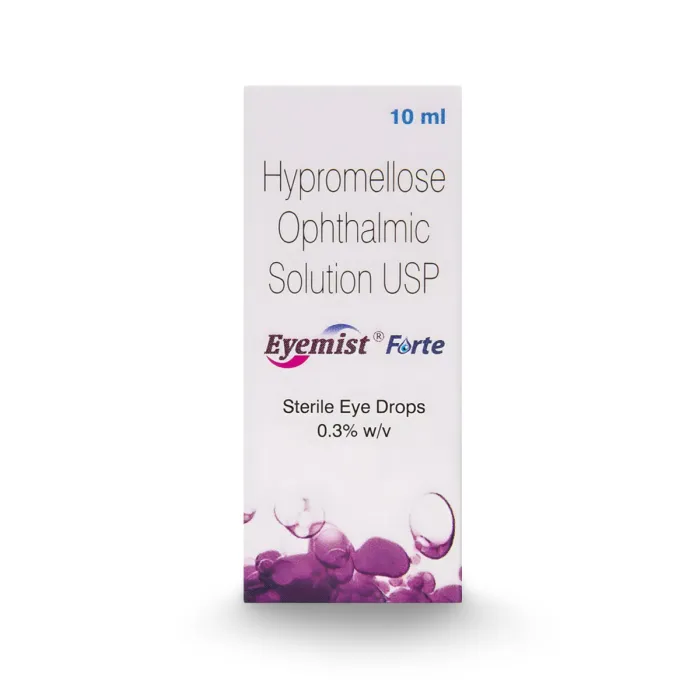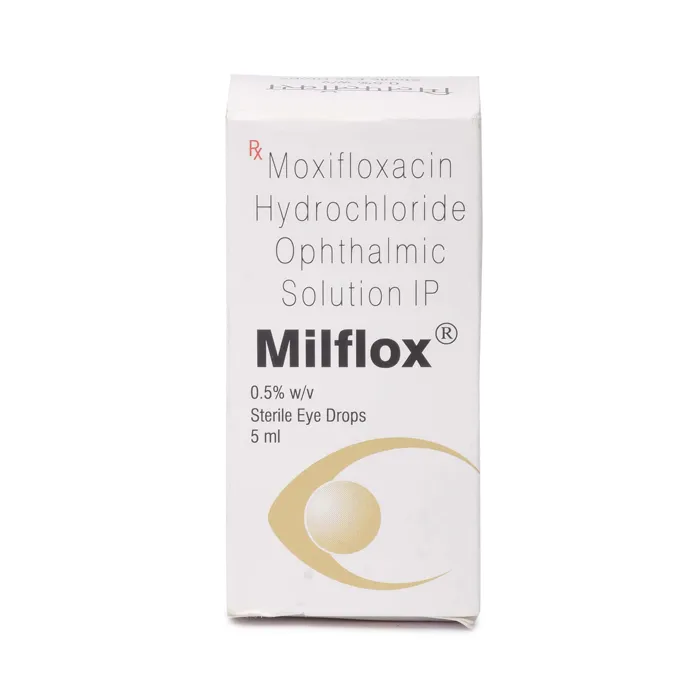Uveitis is a serious eye infection that leads to inflammation of uvea, the middle layer of eye tissues.
Individuals affected with Uveitis often experience blurred vision as a symptom, which may affect their ability to perform everyday activities.
This raises a question – “How long does blurred vision last with Uveitis?”.
Let us proceed with the article to learn the answer to this question, along with the treatment options for Uveitis.
How Long Does Blurred Vision Last With Uveitis
Blurred vision is one of the most common symptoms of Uveitis.
It may occur as a sudden symptom or gradually progress over time.
However, the duration of blurred vision due to Uveitis depends on different factors.
Uveitis, your response to the treatment, and the severity of the infection.
Let us learn about these factors in detail.
Save up to 90% on your medicine bills

Eyemist Forte 10 ml

Milflox 0.5% 5 ml

Restasis 0.05% Ophthalmic Emulsion

Pred Forte 10 ml
Types of Uveitis
Uveitis can be categorized into four primary types, and the duration of blurred vision may vary for each of these types.
Let us learn about blurred vision duration for each of these types of Uveitis in detail.
Anterior Uveitis
 Source: razyph_from_Getty_Images
Source: razyph_from_Getty_ImagesThis is the most prevalent type of Uveitis. Blurred vision is often a symptom of Anterior Uveitis, along with eye pain, light sensitivity, and redness. Depending on the cause and the severity, blurred vision may last from a few days to several weeks with proper treatment.
Intermediate Uveitis
In intermediate Uveitis, blurred vision can occur due to inflammation within the eye. The duration of blurred vision varies, and it may persist for weeks to months.
Posterior Uveitis
Blurred vision in Posterior Uveitis is common and may be associated with other symptoms like floaters or vision loss. The duration of symptoms may last for a few weeks to months.
Panuveitis
Blurred vision in Panuveitis can be a combination of the symptoms associated with the areas affected. The duration of blurred vision may vary depending on the extent of the inflammation.
It’s time to see clearly. Order these effective Prednisolone medications and get rid of the blurry vision that comes with Uveitis:
Severity of Inflammation
The duration of blurred vision is often related to the degree of inflammation of the uvea.
For mild Uveitis, symptoms such as blurred vision might be unnoticeable initially.
As the inflammation increases, it can cause increasing levels of blurred vision, which may progressively develop into cloudy or hazy vision.
In such cases, it becomes important to seek medical treatment immediately.
To learn about food to avoid with Uveitis, read Foods to Avoid with Uveitis: Your Guide to Managing Inflammation.
Response to Treatment
Individual responses to Uveitis treatment may vary, affecting the duration of symptoms such as blurred vision.
Therefore, it is important to seek individualized treatment from your trusted eye doctor.
There are various treatment options available for Uveitis depending on the type and severity.
For severe or chronic Uveitis, long-term treatment may be required to prevent the symptoms from recurring.
Along with blurred vision, Uveitis may cause a variety of eye discomforts.
To know about the other symptoms of Uveitis in detail, read 8 Uveitis Symptoms You Need to be Aware of.
How to Treat Blurred Vision Caused Due to Uveitis
 Source: 89Stocker
Source: 89StockerThere are several treatment options available to manage Uveitis symptoms.
Proper treatment of Uveitis can help manage and treat the symptoms, including blurred vision and headaches.
In most cases, prescription-based medications for Uveitis may be required to treat the condition effectively.
Corticosteroids or anti-inflammatory eye drops are often prescribed to help alleviate blurred vision.
Certain antibiotics might also be helpful if the underlying cause of Uveitis is bacteria.
If the inflammation worsens, immunosuppressants or corticosteroids such as Prednisolone may be prescribed to manage the condition.
In certain severe cases, your doctor may suggest injecting steroids around your eyes.
If these treatments fail to show improvement, your doctor may recommend surgery to treat Uveitis.
Conclusion
Uveitis is a specific eye infection that affects the middle layer of the eyes called the uvea.
The inflammation may cause symptoms such as blurred vision, redness, decreased vision, and light sensitivity.
A common concern among individuals is – “How long does blurred vision last with Uveitis?”.
The answer to this question depends on the type of Uveitis one has and the severity and treatment response of the individual.
In most cases, blurred vision due to Uveitis lasts a few weeks to months.
Apart from blurred vision, Uveitis may also cause redness, eye pain, light sensitivity, and reduced vision.
Most Uveitis symptoms, including blurred vision, eventually improve with proper treatment.
The treatment of Uveitis includes prescription treatments such as Prednisolone and other anti-inflammatory medications.
It is best to consult a trusted ophthalmologist if you observe any Uveitis symptoms.
They will diagnose your condition and prescribe appropriate treatment methods for your condition.
Regain clarity with specialized Uveitis medication- Ventocortil 20 Tablets. Order today only from Cheap Medicine Shop!

Frequently Asked Questions
Does blurred vision from Uveitis go away?
Yes, blurred vision due to Uveitis can go away with proper treatment. However, in certain severe cases, blurred vision may persist and lead to permanent vision impairment.
It is essential to get an accurate diagnosis and proper treatment for your eye condition.
Is blurred vision always a symptom of Uveitis?
No, blurred vision is not always a symptom of Uveitis. While blurring of vision is commonly associated with Uveitis, it is not a necessary symptom of the infection. There are several other symptoms of Uveitis an individual may experience apart from blurred vision. For more information, consult a certified doctor.
What can I do to prevent blurred vision caused due to Uveitis?
While there are no proven methods to prevent Uveitis and its symptoms, you can take certain measures to reduce your chances of contacting the infection. Wear protective eyeglasses, avoid wearing contact lenses, wash your hands frequently, and seek medical help as soon as you notice any eye discomfort.
Can Uveitis cause permanent vision loss?
Yes, Uveitis may lead to permanent vision loss if left untreated. Severe eye inflammation can potentially damage the optic nerve, leading to blindness.
Therefore, it is necessary to seek immediate medical treatment for Uveitis.
Why does Uveitis cause blurry vision?
Uveitis leads to inflammation of the eye’s middle tissue layer called the uvea. This inflammation can strain the eye lens, reducing its flexibility. As a result, the eye’s ability to focus is compromised, leading to blurred vision.
Cheap Medicine Shop only refers to credible, authoritative sources for our content. If you’re curious about how we ensure the integrity of our content, we encourage you to read our Content Information Policy.














